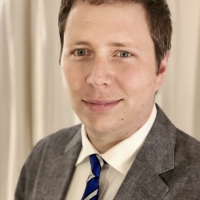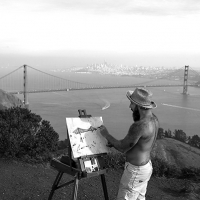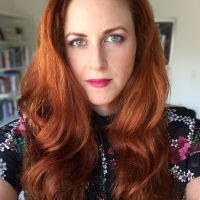INTERDISCIPLINARITY AT THE “MELLON MASHUP”


By Oscar Sosa
On February 21st the Global Urban Humanities Initiative (GloUH) hosted a group of local and visiting faculty from the social sciences and the humanities who met for a few hours to discuss the advantages and challenges of engaging in truly transdisciplinary research. In a nod to the funder of GloUH and its goal of mixing things up, Professor Michael Dear (Department of City and Regional Planning) dubbed the gathering the “Mellon Mashup.” The event began with CED Dean Jennifer Wolch engaging with professors Dear and Jim Ketchum (American Association of Geographers), Sarah Luria (Holy Cross) and Doug Richardson (AAG), who shared their experience working on Geohumanities: Art, History, Text at the Edge of Place, a book project that brought together scholars, artists and practitioners from geography, architecture, humanities and the arts. Panel members talked about key moments in the production of the book where the question of mutual understandings, commonalities and learning from other disciplines became central to the project.
The presenters were joined by UC Berkeley professors Charisma Acey (DCRP). Louise Mozingo (Landscape and Environmental Planning), Alison Post (Political Science), Mark Sandberg (Film) and graduate students from the GloUH spring 2014 course “The City and its Moving Images,” co-taught by Michael Dear and Weihong Bao. The second session focused on viewpoints from UC Berkeley faculty Janaki Bakhle (History), Dan Chatman (DCRP), Nils Gilman (Social Science Matrix), Jonathan Simon (Law) and Weihong Bao (Film, Chinese Studies). The panel touched on important issues related to collaborating across disciplines as well as the challenges intrinsic to transdisciplinary work. The panel engaged in conversation with other faculty and students attending, covering topics and concerns that ranged from methodological and epistemological issues to day-to-day collaboration and institutional challenges to transdisciplinarity.
While the attendees agreed on the importance of transdisciplinarity, there were also diverse opinions on how to better engage in this kind of work. When is a project transdisciplinary? Are some disciplines inherently transdisciplinary?--or, to put it on Dan Chatman’s terms –indisciplinary? Nils Gilman summarized the spirit of the conversation with a call to come down from the hills and onto the plains of disciplines. He spoke of the importance of bringing transdisciplinary work away from the edges and into the core of a discipline’s research and publishing concerns.




